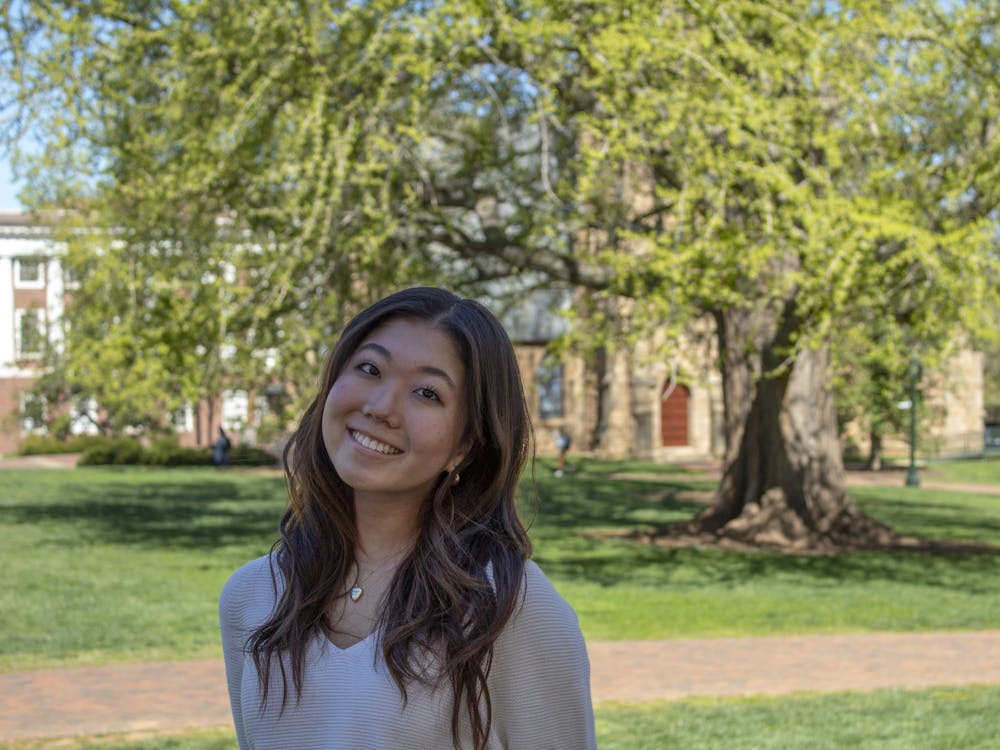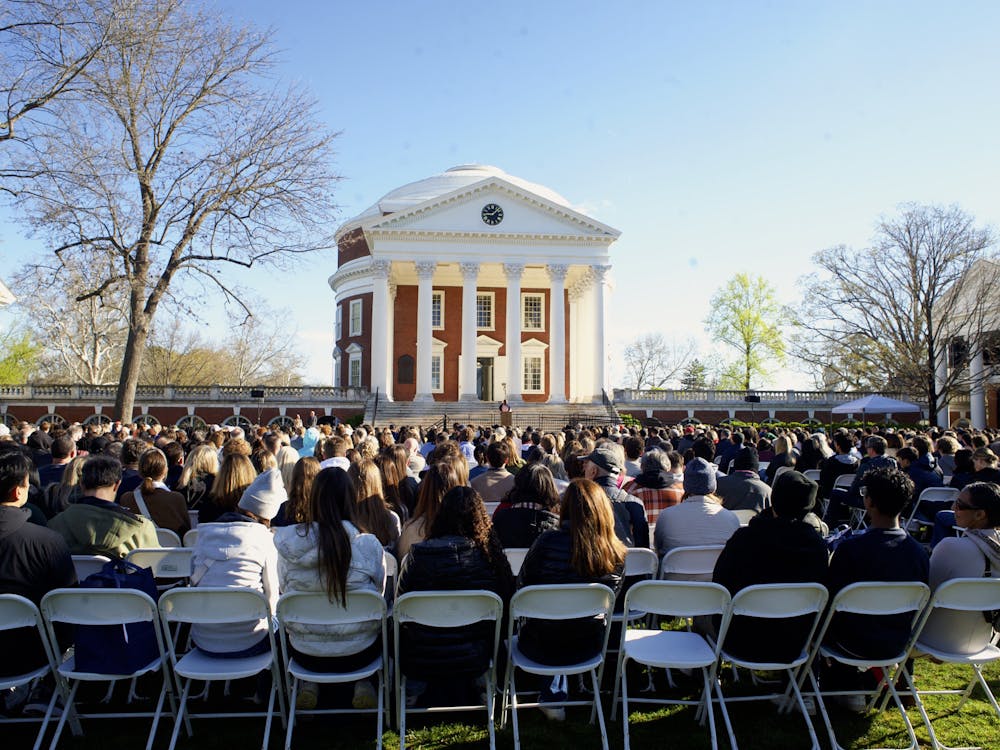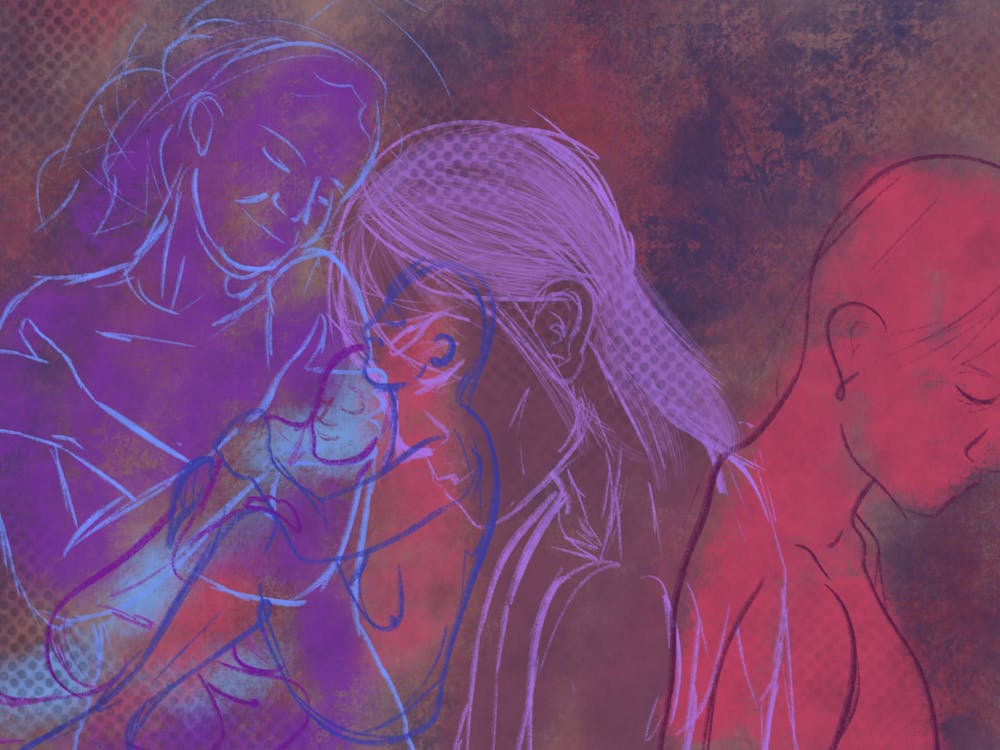“I have a very limited vocabulary,” second-year Engineering student Chris Vaccarello said. But when it comes to Scrabble, he makes every word count.
A fan of the classic board game since childhood, Vaccarello founded Scrabble Club at the University last spring. The club soon attracted a small, devoted crowd — but not of the type one might expect.
“You’d think English majors would be good [at Scrabble], but no,” Vaccarello said during a Sunday afternoon club meeting. “We don’t know what these words mean. We just know they’re words.”
He was joined by fellow second-year Engineering students Alex King and Michael Fiifi Quansah. They said Scrabble is a game of math and strategy.
Each of the 100 Scrabble tiles is assigned a letter and a point value, based on the frequency of the letter in the English language. The more frequent the letter appears in English, the lesser its point value. A “Q” is worth 10 points, for example, whereas an “A” is worth only one. An expert Scrabble player maximizes the value of every word and secures the all-important triple word score squares, while minimizing opportunities for other players.
“A lot has to do with math,” Vaccarello said. “You deal with numbers and points. You ask yourself, ‘Should I wait for it?’”
Serious Scrabble players also densely pack their boards. In this game, “bear,” “welt,” “zed” and “hat” were stacked horizontally so that each play created two words at once. Such packing of the board is where new players can make the biggest improvements to their games.
“Memorize all the two-letter words,” Quansah said. “There are about a hundred of them.”
These words include “qi,” “xi,” “mm,” “sh,” “ae” and “oe.” Though some may not be included in the standard Webster edition, they are approved by the Official Scrabble Players Dictionary, King said.
“Over the summer, I flipped through the dictionary when I was bored,” Quansah said. There he made some surprising — and high-scoring — finds.
“Aa” is a type of Hawaiian lava and “aasvogel” is an African vulture, he learned. The dictionary also contains three different spellings for “aargh.” The most competitive players know almost every word in the Official Scrabble Players Dictionary, King said.
University Scrabble Club members have not yet reached that level of commitment, but there are signs that they are above average players.
On this particular afternoon, Vaccarello, Quansah and King played on a Diamond Anniversary Edition Scrabble board. Far from the iconic cardboard model with pink, blue and beige tiles, this edition comes in bright red and blue plastic. It spins, and diamonds are engraved on the blank tiles.
Quansah has even greater aspirations when it comes to Scrabble editions. Though he currently owns a $15 travel Scrabble board, he said he hopes to purchase a specific board retailing on Amazon.com that can range from $60 to $200: the Premium Wood Edition.
“It’s solid wood and it spins,” Quansah said, adding that the board was endorsed by Oprah Winfrey.
Scrabble’s appeal is not only limited to the United States. Quansah, who is from Ghana, said as a child, he often played Scrabble with his father. Shortly after moving to the United States, he discovered an online version of the game.
The Web site isc.ro is popular among Scrabble players around the globe, for two reasons, Quansah said. First, the Romanian Web site cannot be sued for copyright infringement. Second, it attracts the likes of Joel Sherman, known to some as “G.I. Joel,” one of the world’s best Scrabble players. Sherman’s top-scoring games can be viewed on isc.ro, where “he plays words no one understands,” Quansah said.
But how does a professional Scrabble player make a living? For the best players, the game can be profitable.
Scrabble competitions are held across the country, and top prizes can run in the hundreds of thousands of dollars, King said. He is the only Scrabble Club member to have entered a competition, which was held in Annapolis, Md. Intense “scrabbling,” however, comes with a price.
“It cost $70 to enter,” King said, shaking his head. “I should have been better prepared.”
Even in the lowest division, players knew every two-letter word and most of the three-letter words as well, he said.
Scrabble Club meetings, meanwhile, are considerably more low-key. At Sunday’s meeting, members lazily spun their boards, shuffling the clinking tiles and ruffling through the thick, red Official Scrabble Players Dictionary. The club remains rather small, with about eight members in regular attendance and 20 who occasionally stop in, Vaccarello said.
Scrabble has seen a surge in popularity during recent years, and Facebook’s now defunct Scrabulous, which was closed because of copyright infringement, “really rejuvenated the game among young people,” King said.
There is no doubt, however, that Scrabble remains a niche market, and the University is no exception.
At one point at Sunday’s meeting, a player contested the definition of “gulch.”
“You know, like Blood Gulch in Halo,” another member responded.
“People still see Scrabble as a nerdy game, just like anything that requires mental effort,” Quansah said.
Later in the afternoon, after the complimentary Double-Stuf Oreos had been twisted and consumed, King made the final play and tallied the scores.
“I have 231, Chris has 259, and Fiifi has 206,” he said.
Quansah considered this.
“Respectable,” he said.
They then wiped the clinking tiles from the board, scrambled them together and started again.




